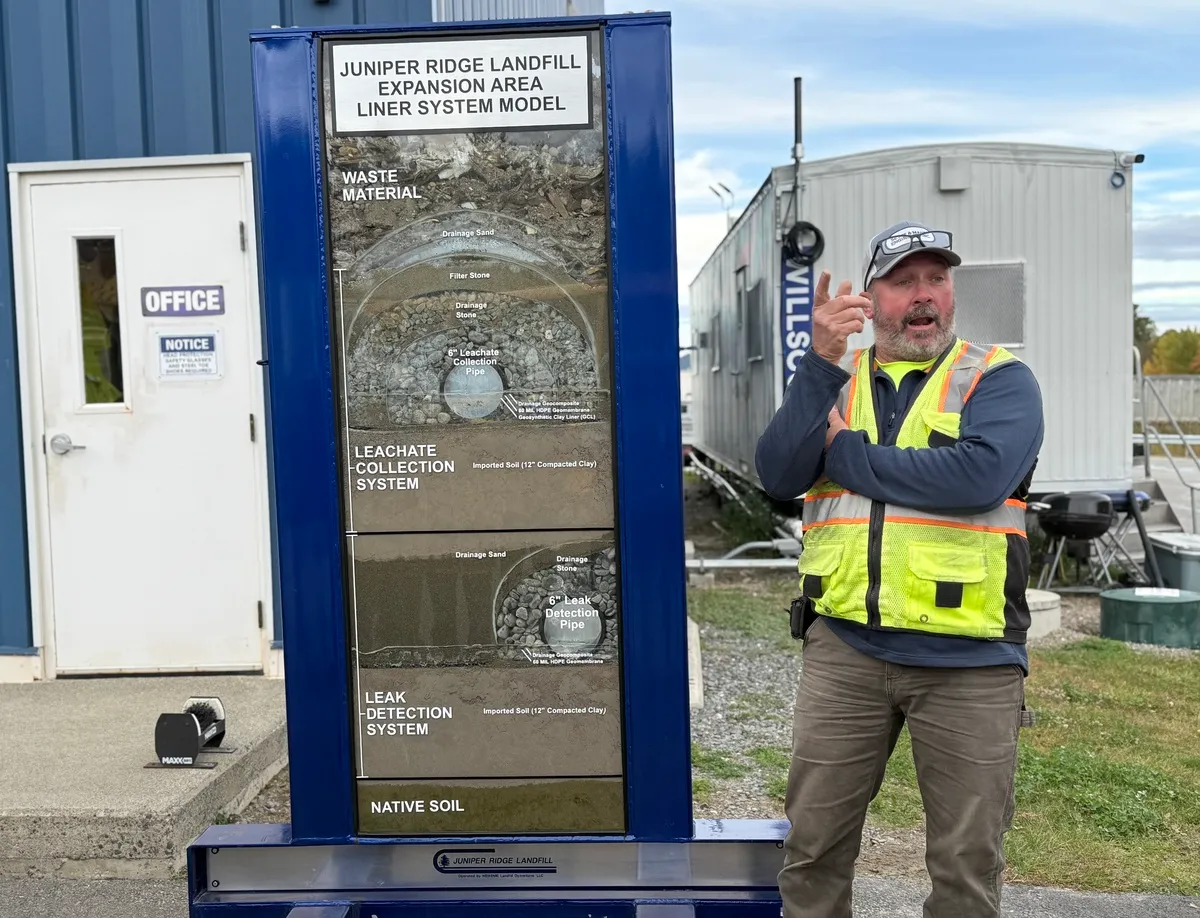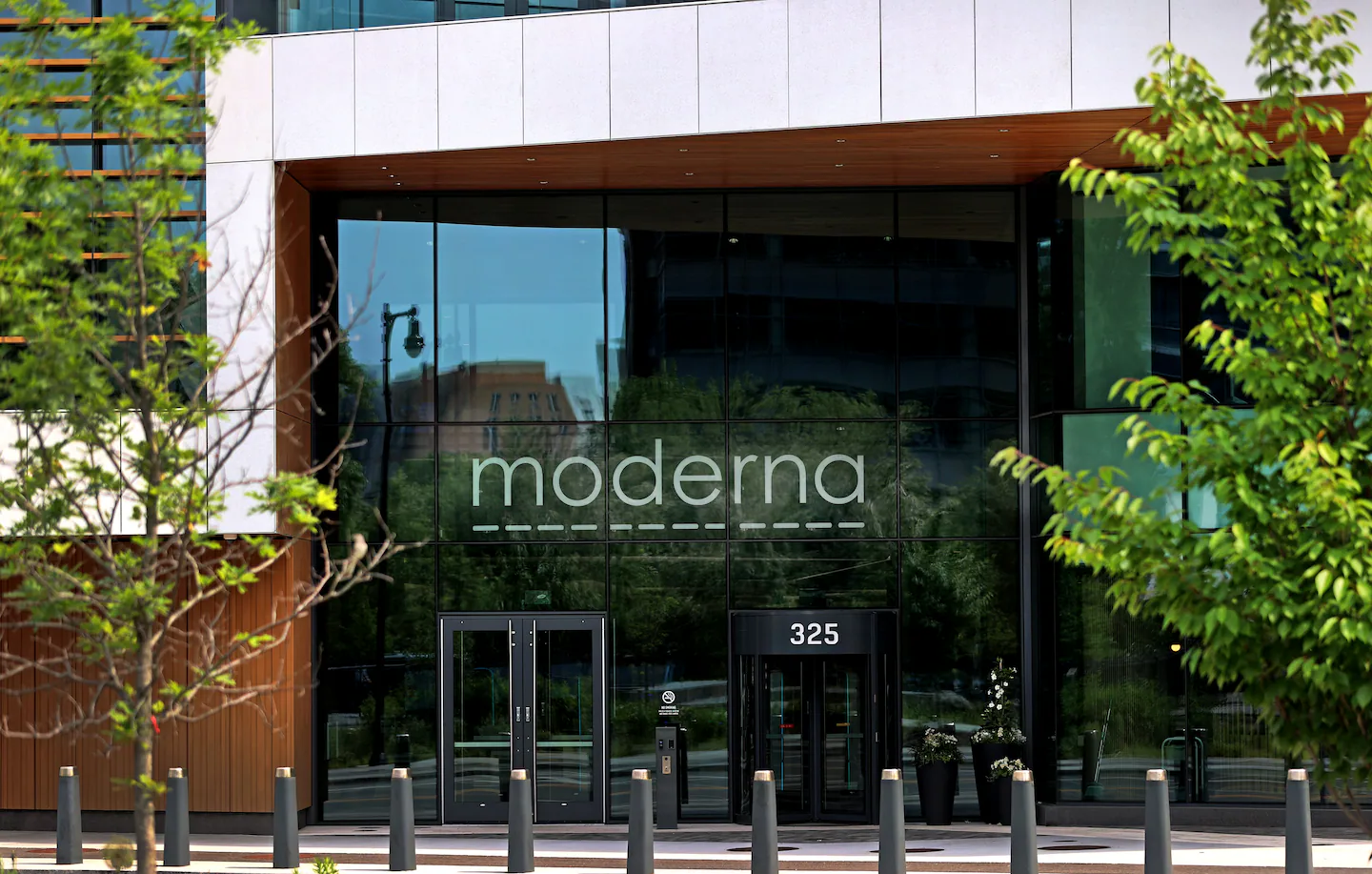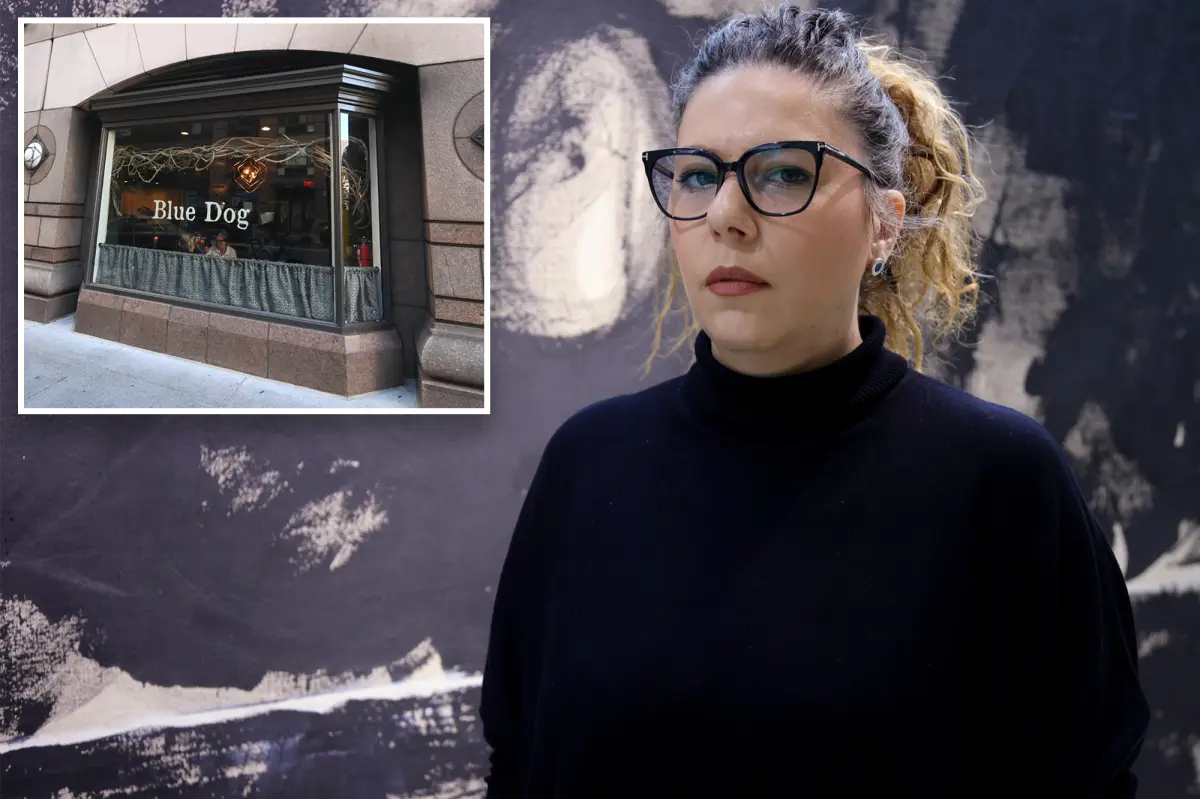Copyright Bangor Daily News

OLD TOWN, Maine — The operator of Maine’s largest landfill is moving ahead with a treatment system for PFAS chemicals, something the state is requiring as part of a controversial 61-acre expansion plan. Casella Waste Systems, whose subsidiary operates the state-owned Juniper Ridge Landfill, is reviewing results from two pilot projects it ran over the summer. It will submit one to the state for approval to build a full-scale treatment system. That system will treat contaminated water runoff at the landfill that has become an increasing concern to nearby communities. “We’re trying to get the best product for the money and the latest technologies,” Wayne Boyd, general manager of Casella Waste Systems, told lawmakers during a recent tour of the landfill. Lawmakers have been debating how to safely clean up this runoff, which is called leachate, because it contains much higher levels of the PFAS “forever chemicals” than the state’s regulations for drinking water. If successful, the pre-treatment system could become a model for other landfills throughout Maine. But the Penobscot Nation and other neighbors of Juniper Ridge worry about the effectiveness of current technologies. Casella is aiming to build the treatment system by 2027. About half of the state’s landfill waste ends up at Juniper Ridge, which is expected to hit capacity in 2028. Maine’s Department of Environmental Protection approved the landfill’s expansion late last year as a benefit to the public. The expansion would add 11 years of use to the landfill. The Penobscot Nation and the Conservation Law Foundation appealed the expansion over concerns about forever chemicals, air contaminants and the proximity of the expansion to tribal lands. Some 13.2 million people live within a mile of a landfill in the U.S., according to environmental engineering firm Fehr Graham. A judge based in Bangor is still reviewing the case after hearing arguments in July. The move by Casella would build on its work in Vermont, where its pilot system has shown good results in removing PFAS chemicals. The synthetic chemicals are pervasive in consumer and industrial products including non-stick cookware and water-repellant clothing. As a result, PFAS substances end up in landfills. The Vermont system uses a technology called foam fractionation, which attracts PFAS chemicals to foam and condenses them. It removes about 99 percent of four types of PFAS and 66 percent of another type, Boyd said. Both pilot systems at Juniper Ridge use a version of the technology. Leachate is mostly made up of rainwater that picks up contamination as it runs through the landfill. It contains other toxic substances besides PFAS, making it difficult to treat. Neither the federal nor state governments have set standards for a safe amount of PFAS in leachate. The Juniper Ridge leachate is currently held in a million-gallon tank before being trucked, untreated, to nearby ND Paper, which discharges it into the Penobscot River. The proposed leachate treatment facility aims to remove much of the PFAS beforehand. The pilot projects both removed PFAS chemicals from leachate, one by concentrating the chemicals and the other by concentrating and destroying them. But some question if the treatment will be enough. “No treatment system will remove all toxics from leachate, nor cure the landfill pollution in the Penobscot River; at best, the contaminants in the landfill liquid will be lessened,” Nora Bosworth, an attorney at the Conservation Law Foundation, said. That concerns the Penobscot Nation. The landfill expansion is within 1.5 miles of islands on the Penobscot Nation Reservation and about 6 miles from land that includes a school, daycare, youth program and a health center. “The known presence of PFAS in leachate that is discharged into the Penobscot River is deeply concerning,” Penobscot Nation Chief Kirk Francis wrote as part of the appeal. “Our culture relies on wild foods, and when our traditional food sources are contaminated, we are forced to choose between being true to our traditions while risking the health of our tribe or moving away from our centuries-old culture.” Last year legislators proposed a law that would have required Juniper Ridge to treat the PFAS in its leachate to the same stringent level as drinking water. But Gov. Janet Mills vetoed it in April 2024 and the Legislature sustained the veto a month later. In a letter to legislators, she said the best available technologies for treating leachate cannot currently meet more stringent drinking water standards. Maine’s safe standard for drinking water is 20 parts per trillion for six well-studied types of PFAS. An October 2023 leachate sample from Juniper Ridge registered 2,920 parts per trillion for those types, according to Maine’s environmental department. “There is no question that PFAS contamination poses a threat to the health of our people, our wildlife and our environment, but applying drinking water standards to the treatment of landfill leachate is not appropriate,” Mills, a Democrat, wrote. Casella plans to submit permit applications for the leachate pretreatment project next year. The company still will need to deal with any outcomes of the Penobscot Nation challenge and get approval from the DEP for the expansion and its full system. Regardless of those outcomes, it still plans to build the treatment facility, a spokesperson said. “The scale and scope of those efforts will depend on having the proposed expansion as a critical component to long-term waste management planning,” he said. Lori Valigra reports on the environment for the BDN’s Maine Focus investigative team. Reach her at lvaligra@bangordailynews.com. Support for this reporting is provided by the Unity Foundation, the Broad Reach Foundation and donations by BDN readers.



